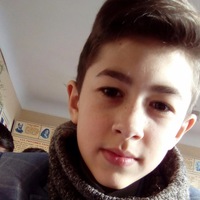
He knows many English poems by heart. ( В прошедшие и будущие )
 0
0
 0
0
Ответы на вопрос
 Внимание! Ответы на вопросы дают живые люди. Они могут содержать ошибочную информацию, заблуждения, а также ответы могут быть сгенерированы нейросетями. Будьте внимательны. Если вы уверены, что ответ неверный, нажмите кнопку "Пожаловаться" под ответом.
Внимание! Ответы на вопросы дают живые люди. Они могут содержать ошибочную информацию, заблуждения, а также ответы могут быть сгенерированы нейросетями. Будьте внимательны. Если вы уверены, что ответ неверный, нажмите кнопку "Пожаловаться" под ответом.

Past Simple (прошедшие): He knew many English poems by heart.
Future Simple (будущее): He will know many English poems by heart.
 0
0
 0
0

he will know many English poems by heart ( в будещем)
 0
0
 0
0

"He knows many English poems by heart" is a sentence written in the present tense, indicating an action that is happening currently. To indicate both past and future actions, we can modify the sentence as follows:
Past tense: "He knew many English poems by heart." (This implies that at some point in the past, he had memorized many English poems.)
Future tense: "He will know many English poems by heart." (This suggests that at some point in the future, he will memorize many English poems.)
Present tense (original): "He knows many English poems by heart." (This indicates that currently, he has already memorized many English poems.)
Remember, the choice of tense depends on the context and when the action is happening or has happened.
 0
0
 0
0
Похожие вопросы
Топ вопросов за вчера в категории Английский язык
Последние заданные вопросы в категории Английский язык
-
Математика
-
Литература
-
Алгебра
-
Русский язык
-
Геометрия
-
Английский язык
-
Химия
-
Физика
-
Биология
-
Другие предметы
-
История
-
Обществознание
-
Окружающий мир
-
География
-
Українська мова
-
Информатика
-
Українська література
-
Қазақ тiлi
-
Экономика
-
Музыка
-
Право
-
Беларуская мова
-
Французский язык
-
Немецкий язык
-
МХК
-
ОБЖ
-
Психология
-
Физкультура и спорт
-
Астрономия
-
Кыргыз тили
-
Оʻzbek tili



























